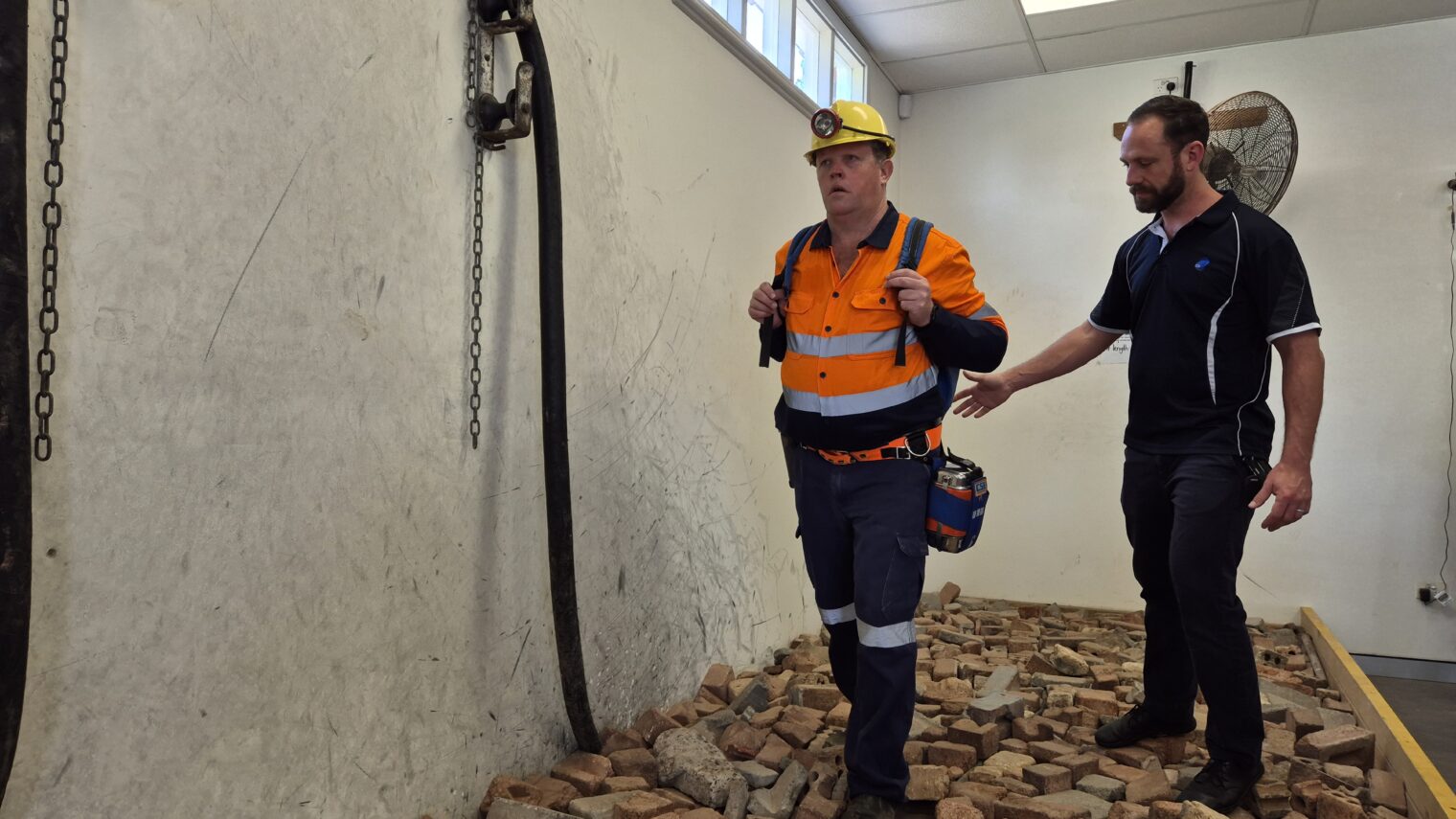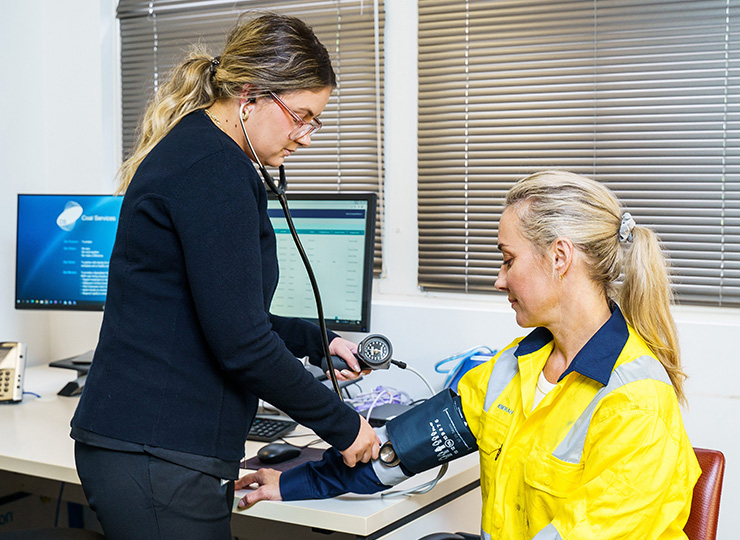If someone has been ill or injured, or is looking for help to manage a chronic health condition or improve their health, our allied health treatment services may help.
Our services include:
- Work simulation
- Physiotherapy
- Exercise physiology
- Psychology
- Occupational therapy
Our allied team are SIRA accredited treatment providers, specially trained in managing workers compensation injuries. CS Health can provide early intervention or treatment for a variety of injuries and health conditions. Services can be delivered onsite, at our CS Health offices or via Telehealth.
Work simulation
Work simulation, including graded activity with work‐related exercises, can assist injured workers to recover from both acute and chronic pain. The addition of more extensive, work-focused interventions can lead to better outcomes compared to traditional care for workers who may be at risk of a delayed return to work.
There is strong evidence that recovery at work and early return to good work can assist recovery and prevent secondary complications that can arise from being away from the workplace. The NSW coal industry faces unique challenges in offering suitable duties, which can limit injured workers’ opportunity to recover at work.
CS Health’s work simulation program is different to other physiotherapy and exercise physiology services. The program is:
- Conducted at our purpose-built facilities using actual mining equipment to replicate onsite tasks
- Flexible in frequency and duration (e.g. several sessions a week over 2 to 12 weeks) depending on the worker’s injury, capacity and work role
- Performed in a group format to foster culture and comaraderie
- Therapy within Nominated Treating Doctor’s Certificate of Capacity to demonstrate readiness for return to work
- Delivered by SIRA-approved physiotherapists, exercise physiologists and occupational therapists with specialist expertise in the mining industry
- Complemented by using virtual reality scenarios to support return to work
“It has been great to practice parts of my job with my injury before going back to work.” – Work Simulation Participant

CS Health's work simulation program
Physiotherapy
Physiotherapy may improve mobility and strength and reduce the pain and stiffness related to a variety of musculoskeletal conditions including:
- spinal and peripheral injuries
- work-related and sports injuries
- assistance with pain management.
Physiotherapists can also help to prevent further injury by listening to clients’ needs and working with them to plan the most appropriate management for their condition, such as:
- education about the condition, posture or movement restrictions
- manual therapy (mobilisation or manipulation)
- exercises to improve strength, balance, flexibility or co-ordination
- sport-specific rehabilitation.
Exercise physiology
Exercise physiologists use exercise and cognitive behavioural techniques as a way of preventing, managing or treating health conditions and injuries such as:
- injury management
- mobility issues
- cardiovascular (heart) disease
- musculoskeletal injuries (e.g. arthritis, osteoporosis, back/knee pain)
- diabetes and obesity
- asthma or emphysema
- improving strength and conditioning.
Other services include:
- weight management
- exercise programs for general fitness
- pre and post-surgical rehabilitation
- enhancing sports performance.
Psychology
CS Health Psychology services provide confidential, short term and solution focused counselling to assist clients with clarifying problems, identifying options and developing management plans to constructively resolve issues. Services are available as early intervention or workers’ compensation and can be provided by telehealth in all areas. Face-to-face sessions are available in selected CS Health facilities.
Psychology service can also be provided to members of mining communities as part of a GP Mental Health Care Plan.
Occupational therapy
Our occupational therapists are highly skilled professionals specialising in work rehabilitation, injury prevention and ergonomic services.
Occupational therapists can help clients regain or improve independence in work or in domestic and social activities.
An occupational therapist can perform an activities of daily living (ADL) assessment in the home and make recommendations for equipment, therapy or other strategies to assist following injury or times of incapacity.
Share this page

